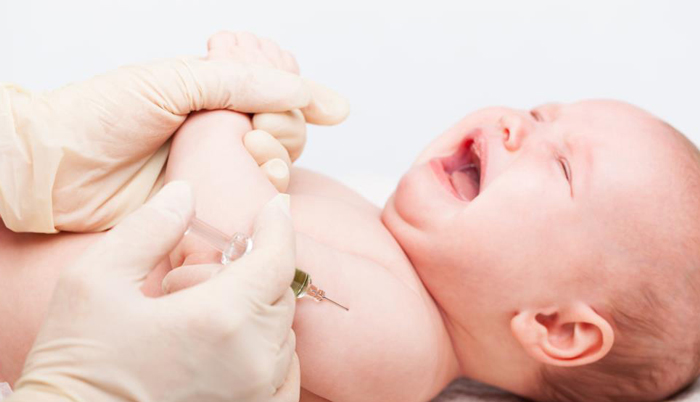![]() Home > Lifestyle
Home > Lifestyle
Study: Developed Nations Requiring The Most Infant Vaccines Have The Highest Childhood Mortality Rates

![]() September 16th, 2023 | 13:03 PM |
September 16th, 2023 | 13:03 PM | ![]() 1719 views
1719 views
NATURAL NEWS
According to a study, developed nations requiring the most neonatal vaccine doses have the worst mortality rates among children younger than five.
Details of the study were published in the journal Cureus.
Researchers Neil Miller, director of the Institute of Medical and Scientific Inquiry in New Mexico, and Gary Goldman, performed several analyses based on 2019 and 2021 data to examine the link between the number of early childhood vaccinations required by developed nations and their neonatal, infant and under-five mortality rates.
The study revealed that children in developed nations that require more neonatal vaccinations often face adverse consequences that increase childhood mortality, suggesting that administering more vaccines to infants does not result in fewer deaths.
Some nations administer hepatitis B and tuberculosis bacille Calmette-Guerin (BCG) vaccines to infants after birth. The study found that nations that require both vaccines actually had significantly worse infant mortality rates compared to nations that require neither vaccine.
Miller and Goldman’s research began in 2011 when they published a paper using 2009 data showing less favorable infant mortality rates among highly developed nations requiring the most infant vaccinations.
Their new study replicates their original study using 2019 and 2021 data from the top 50 nations where childhood vaccine doses range from 12 to 26. Their findings show that infant mortality rate increased by 0.167 deaths per 1,000 live births for each additional vaccine dose added to the vaccination schedule, supporting the results of their 2011 study.
In 2009, 29 nations had better infant mortality rates than the United States. However, by 2019, the U.S. had dropped to 44th in infant mortality rankings. In 2021, the U.S. ranked 50th and required the highest number of infant vaccines. (Related: VACCINE ROULETTE: Some vaccine batches far more toxic than others, analysts find.)
In their latest study, Miller and Goldman widened their research to analyze the impact of hepatitis and tuberculosis vaccines on mortality rates of neonatal infants (defined as babies under 28 days old), infants up to age one and children under five.
Mortality data and vaccination schedules were compiled from the European Centre for Disease Prevention and Control (ECDC), the United Nations Children's Fund (UNICEF), the World Health Organization (WHO) and national governments.
The researchers grouped the nations based on whether they required zero, one or two vaccine doses for newborns to find out their statistical significance to mortality rates of the three age groups.
Their analysis revealed that neonatal vaccines for hepatitis B and tuberculosis do not contribute to an overall reduction in mortality in nations where infants have a low mortality risk for these illnesses.
Reducing infant vaccine doses linked to decreased mortality
Using 2021 data, Miller and Goldman also discovered a statistically significant difference of 1.28 deaths per 1,000 live births between the mean infant mortality rates of nations that did not vaccinate their neonates (defined as babies four weeks or younger) and those that required two vaccine doses.
For each reduction of six vaccine doses administered during infancy, the infant mortality rate was improved by roughly one death per 1,000 live births.
The researchers also found that vaccines administered during the first year of life had a greater influence on under-age-five mortality rates compared with vaccines administered in the second through fifth years of life.
This implies that younger infants who generally weigh less and receive more vaccines in a shorter period are more likely to experience an adverse reaction resulting in hospitalization or death.
Miller said that in the majority of nations, over 50 percent of infant deaths occur during the neonatal period, and about 75 percent of neonatal deaths occur during the first week of life when neonatal vaccines are administered.
Deaths that occur during this period have a large impact on neonatal, infant and under-age-five mortality rates. In fact, neonatal mortality comprises 61 percent of America's infant mortality rate and 52 percent of its under-age-five mortality rate.
Miller also revealed that doctors, coroners and other medical examiners are forced to misclassify and conceal vaccine-related fatalities since alternate cause-of-death classifications linked to infant vaccination are nonexistent.
The study also showed that vaccines have "non-specific effects" that can increase or decrease mortality from infectious diseases not targeted by the vaccine.
Some deaths linked to neonatal vaccines may be delayed
According to Miller, some deaths linked to neonatal vaccines may be delayed, such as with a priming mechanism or cumulative toxicity that increases the risk of a severe or fatal reaction to subsequently administered vaccines.
A 2018 study published in the journal Vaccine showed that the sequence of vaccinations can also affect all-cause mortality. Researchers reported that girls who received a pentavalent vaccine (five vaccines in one) after getting a measles vaccine were five times more likely to die from all causes within six months of follow-up compared to girls who followed the recommended schedule.
Miller and Goldman said 17 of the 18 analyses they conducted corroborated that giving more vaccine doses results in higher infant and early childhood mortality rates in developed nations.
The researchers urged vaccine policymakers to learn the full effect of the current vaccination schedule on deaths from any cause and to conduct safety research into the number of recommended childhood vaccines and how they’re administered to confirm that they are positively impacting child survival instead of simply demanding them because Big Pharma insists that they are required.
Source:
courtesy of NATURALNEWS
by Zoey Sky
If you have any stories or news that you would like to share with the global online community, please feel free to share it with us by contacting us directly at [email protected]